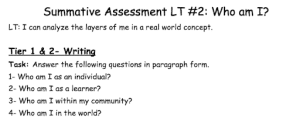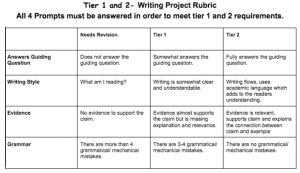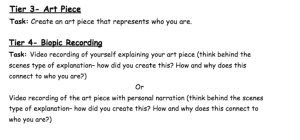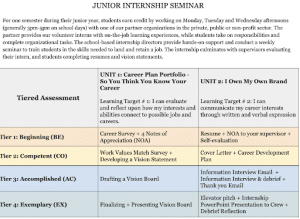Student Reflections on the Competency-Based Tier System at Brooklyn Collaborative
CompetencyWorks Blog
We are delighted to publish our second student-authored blog post on CompetencyWorks!
The community at Brooklyn Collaborative Studies (BCS) is what we call “family” – a bond that is stronger than at any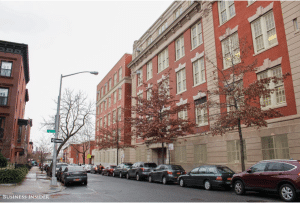 other schools I know. BCS is a middle school and high school where everyone is welcomed and accepted. BCS is a school where the teachers, staff, and heads of school give access and help for everyone to pass their classes and move onto the next level to get into college or on many other paths the students set their minds to follow.
other schools I know. BCS is a middle school and high school where everyone is welcomed and accepted. BCS is a school where the teachers, staff, and heads of school give access and help for everyone to pass their classes and move onto the next level to get into college or on many other paths the students set their minds to follow.
At Brooklyn Collaborative Studies we use a tier system. The tier system is like no other system! It is simple yet powerful and impactful. Many students at BCS seem to enjoy it and find it easier to level up to the next tier to learn and bring their grade up. They are able to interact with their teachers and students to help them advance to the next level. The system at BCS is presented in a way for everyone to find it simple and easy to understand. The beginning level (BE) is 65, competent level (CO) is a 75, accomplished (AC) is an 85 and exemplary (EX) is a 95.
Our grading system consists of 80% academic learning targets (BCS competencies) and 20% Habits of a Graduate (HOG). The Habits of a Graduate reflect upon our actions and behavior throughout each semester in our community. Some of the HOG include being on time to class, controlling your actions and body behavior, and your community actions and choices. They also include completing your work and turning it in on time. Habits of a Graduate help us to become better students as we practice and get feedback on the habits in each class from our teachers.
Our system allows students to fully pass their classes even if they are struggling. They contain opportunities that help people who aren’t doing well in school by helping them understand and welcome learning and how to do better in school. BCS doesn’t only use worksheets or tests to allow students to get their grades up but also allows each student to explore new ways of learning through teamwork, fieldwork, and projects.
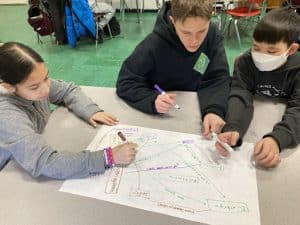
What is one moment where I experienced personalized support to direct my learning?
Many students have stories when it comes to teachers providing them help with their work and supporting them with the tiers. A personal moment when I felt support and learning beyond classroom hours is a moment in 9th grade when my English teacher, Sheryl, supported me by expanding my learning beyond the 9th-grade level skill. One day in class I was having a lot of trouble engaging and starting my tier one essay at the beginning level. I felt a sense of pressure on my shoulders since I wasn’t really paying attention, but also I was scared because this was my first 9th-grade essay. I worried that I wouldn’t meet expectations. Instead of focusing, I got distracted and chatted with my peers.
My teacher noticed and pulled me aside to the back table and kept me after class to work on my essay. She seemed to realize I was stuck. I got a lot of help from her that allowed me to excel on my writing level past 9th-grade and onto the next tiers. I appreciated her a lot in that moment and felt comfortable enough to go and ask my questions that helped me with my writing. Her feedback engaged me a lot and allowed me to pass the first summative assessment of the semester.
How does the BCS system compare to grading in other schools you’ve heard about?
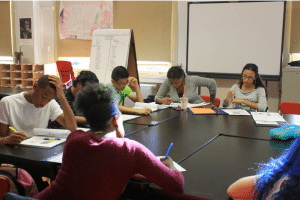
The system at BCS is unique. It may be simple but it’s easier for students to understand and expand their learning. BCS offers many chances for students to advance to the next level of their learning. BCS offers tiered support every Tuesday where students stick around after school and have sessions with their teachers in small groups and get support with missing assignments or tests they have to make up. Also, you are usually able to get support from your teacher whether it’s after school or during school through feedback on your work or helping you with a part of work that you are stuck on or need more time to learn. Kids are able to receive one-on-one feedback to finalize their work and are given an opportunity to raise their level of performance. Tiered support allows students to have a one-on-one conversation with their teachers. Students tend to find this very helpful since they are able to learn and understand parts they are confused on at their pace.
What advice do you have for other schools, teachers, or students who want to design similar moments or learning or connection?
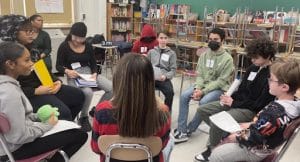
At BCS, we only want the best for the students and encourage them to give their all to get to the next level. The tiered system is a great system which many other schools should have. Advice that BCS would give to other schools would be to have a more organized system to help students stay up-to-date with their grades and assignments. Many school systems use A, B, and C’s to grade students and have high-stakes final assessments. At BCS it’s different for us because we use tiered systems. Students have multiple opportunities to earn a grade they deserve by having time and support at every level to learn. Teachers at BCS give students new work in each tier for a new opportunity for students to learn, whether it’s an essay or team project or final test. Teachers will try their best to allow their students to fully bring their grades up a level.
We recommend this system to many schools and for them to take a chance and start using it since it’s efficient and easier for students. Students know what tier they’re at and how to get to the next tier. BCS does not want students to feel stressed with their work. We give students more than one opportunity to advance their learning and bring their grades up, which should be considered by other schools.
Here are some examples of high school tier work:
Learn More
- From Memorizing for Tests to Learning for Life
- When Students and Adults Work Together Toward Change
- Catalyzing Master-Based Learning: NYC’s Mastery Collaborative
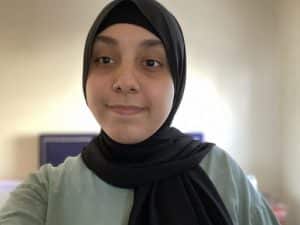 Hello, I’m Miariam Khalil. I’m a student at Brooklyn Collaborative Studies. I’m currently 14 and in 9th grade. I’m passionate about my school work and grades. As a future job I would like to become a lawyer. I enjoy writing. In my free time I enjoy reading and spending time with my friends and my family.
Hello, I’m Miariam Khalil. I’m a student at Brooklyn Collaborative Studies. I’m currently 14 and in 9th grade. I’m passionate about my school work and grades. As a future job I would like to become a lawyer. I enjoy writing. In my free time I enjoy reading and spending time with my friends and my family.
